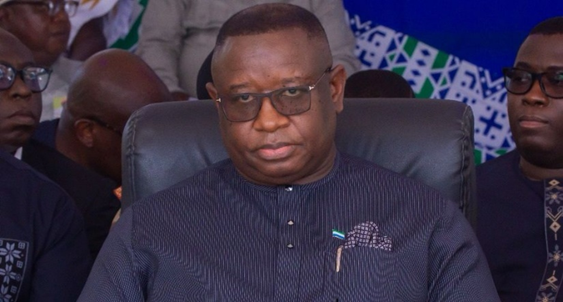By Mackie M. Jalloh
A new wave of global data has cast an unsettling light on Sierra Leone’s emotional well-being, with two major international reports painting a grim picture of a nation weighed down by daily worry, emotional distress, and persistent unhappiness.
According to Gallup’s State of the World’s Emotional Health report, Sierra Leone tops the world in daily worry, with 67 percent of adults reporting that they feel worried on a regular basis — the highest level recorded globally. Close behind is neighboring Guinea at 66 percent, signaling a regional pattern of psychological strain across West Africa.
Gallup’s findings point to a troubling trend: nine of the world’s eleven most worried populations are located in Sub-Saharan Africa. The survey shows that adults in the region report high levels of anger, sadness, physical pain, and stress, reflecting a convergence of emotional and economic hardship.
In parallel, the World Happiness Report 2025 ranked Sierra Leone among the least happy nations on earth, with a national happiness score of 3.245 out of 10, far below the global average of 5.56. Despite improvements in democratic governance and human capital investment, Sierra Leone continues to struggle with systemic poverty, limited access to mental health care, and inadequate social support systems — factors that experts say contribute to the nation’s pervasive emotional fatigue.
Sierra Leone’s position in both reports underscores a widening gap between the country’s development ambitions and the lived realities of its people. Analysts say that decades of economic instability, high unemployment, and recurring public health crises have taken a lasting toll on citizens’ psychological well-being.
Dr. James Tucker, a psychologist and researcher at the University of Sierra Leone, says the data reflect what he describes as “a silent national emergency.” “Worry has become a cultural undercurrent,” he explained. “Many Sierra Leoneans wake up uncertain about food, jobs, healthcare, or safety. These daily anxieties accumulate into collective emotional exhaustion that statistics are only beginning to capture.”
The country’s emotional health challenge is compounded by deep structural inequities and fragile public systems. Despite notable progress under government initiatives such as Free Quality Education and Feed Salone, the benefits have yet to significantly alleviate daily life pressures for most households.
Gallup’s research also noted a rise in anger and sadness among Sierra Leoneans, with more than one-third of adults admitting to feeling angry in the days before the survey. These emotions, experts argue, are often linked to feelings of powerlessness, unemployment, and social exclusion.
The World Happiness Report, produced annually by the United Nations Sustainable Development Solutions Network, measures happiness based on factors like income, life expectancy, social support, generosity, freedom, and corruption perception. Sierra Leone’s consistently low ranking over the years reflects enduring socio-economic fragility, compounded by political polarization and governance challenges.
Interestingly, the same report acknowledges Sierra Leoneans’ reputation for kindness toward strangers, a cultural strength that persists even amid widespread hardship. However, this goodwill has not translated into higher life satisfaction, suggesting that individual resilience may not be enough to offset structural despair.
Civil society groups are now urging the government and international partners to prioritize mental health policies and social protection programs. They argue that emotional well-being should be treated as a national development issue, not merely a private concern.
“Mental health must move from the margins to the center of policy,” says Aminata Kamara, a youth activist based in Bo. “People cannot contribute meaningfully to development when they are emotionally burdened, anxious, and unhappy. A nation’s strength lies in the mental stability of its citizens.”
As Sierra Leone confronts these sobering findings, both Gallup and the UN urge countries to view emotional health as a vital component of progress. For Sierra Leone, the challenge now lies in transforming data into action — building a society where well-being is not a privilege, but a national priority.



